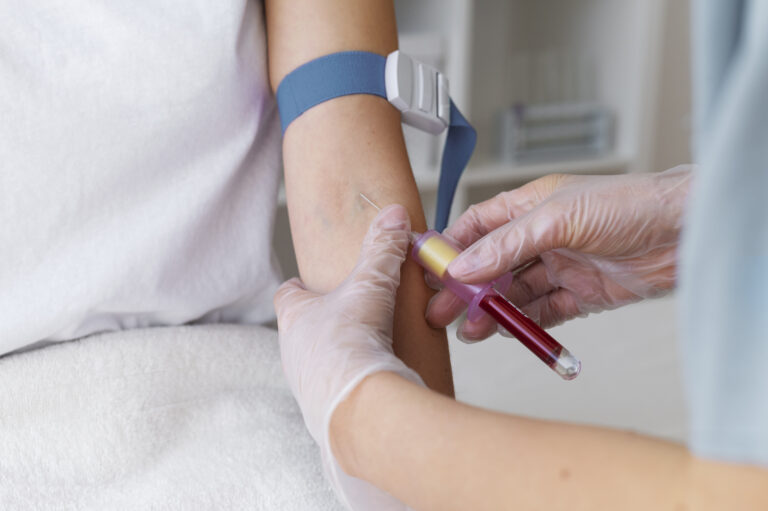Welcome to a guide that puts you in control of your well-being!
In this article, we’re breaking down four straightforward lifestyle tips to enhance your blood sugar levels. Designed for simplicity and effectiveness, these tips offer practical insights into a holistic approach to health.
Embrace these four lifestyle tips to optimize this crucial aspect and feel your best!
Why is it important to pay attention to maintaining balanced blood sugar levels?
Maintaining stable blood sugar has a big impact on how you feel and your overall health.
Balanced blood sugar can:
- Keep your energy levels steady all day.
- Aid in weight loss.
- Delay or prevent diabetes.
- Lower the risk of heart disease.
- Regulate your mood.
- Enhance your sleep quality.
What occurs when blood sugar is in optimal balance and what happens when it becomes imbalanced?
When everything is working smoothly, your body breaks down food into glucose, which is then brought into your cells by insulin for energy.
But when things go awry, your cells might not respond well to insulin, leading to high blood sugar levels.
This puts extra stress on your pancreas, making it work harder to regulate blood sugar. Increased insulin production can lead to more fat storage and potentially type 2 diabetes—a condition that comes with various health issues if not managed properly.
Even if you’re not diagnosed with diabetes, what you eat can cause spikes in post-meal blood sugar. Foods high in simple carbohydrates like soda, candy, pastries, chips, cookies, and sugary cereal can quickly raise glucose and insulin levels.
These rapid changes affect your energy and mood.
If this cycle continues over time, it might lead to insulin resistance, prediabetes, or even type 2 diabetes. Managing your weight is one way to help control glucose and insulin levels.
1) Weight loss can improve blood sugar balance
Having too much weight increases your risk of problems like type 2 diabetes and heart disease. Fat cells, especially when there are too many, resist insulin more than muscle cells, making it harder to balance blood sugar.
The good news is that even a small weight loss can help. Losing 5-7% of your body weight improves blood glucose levels by making your body more sensitive to insulin.
In a study, overweight adults reduced their diabetes risk by 58% by losing 5-7% of body weight and getting more active. If you’re over 60, that risk drops to 71% in a 3-year study.
Losing more weight—10-15%—has even bigger benefits, improving issues like heart disease and fatty liver.
2) Diet is critical for optimal blood sugar
Balanced meals
Eating well is easy with balanced meals! Just mix non-starchy veggies, lean protein, and whole grains. This combo slows down digestion, keeps your blood sugar steady, and leaves you feeling full and happy.
Follow the plate method for a simple guide:
- Fill half your 9-inch plate with non-starchy veggies.
- Add a quarter with lean protein.
- Reserve the last quarter for whole grains.
This method is all about veggies, making it easier to feel full without lots of calories—perfect for weight loss! Want to know more? Click [here](insert link).
Dietary fiber
Boost your chances of balanced blood sugar by hitting your daily fiber goals. For adults, aim for 14 grams of fiber per 1000 calories—MyNetDiary’s default goal. It’s easy to tweak in the app; check this article for setting nutrient targets.
Dietary fiber, a carb that doesn’t digest, is great for managing post-meal glucose levels. Both soluble and insoluble fibers are good for health, but studies show soluble fiber, like that found in these foods, can improve post-meal blood sugar and insulin sensitivity, especially for type 2 diabetes:
- Beans
- Oatmeal (try it baked!)
- Whole oats (add to smoothies or baking)
- Brown rice
- Quinoa (try it in a salad)
- Popcorn
- Flaxseeds
- Whole barley (great in soups)
- Wild rice
3) Hydration and blood sugar balance
Here’s a surprising fact: dehydration can up your blood sugar levels. When you’re low on water, there’s a higher percentage of glucose in your blood. If you’re working on staying hydrated but plain water isn’t your thing, check out this article for some sugar-free drink ideas.
4) The benefits of exercise on blood sugar
Exercise is a great way to lower blood sugar by using up glucose to fuel your muscles. Whether it’s a walk or a workout, the benefits last for hours afterward.
Here’s how you can make exercise easy:
- Take a walk
- Try resistance training with bands or your body weight
- Tidy up your house
- Do some yoga
- Sneak in ‘exercise snacks’
Aim for a mix of aerobic and resistance training, around 30 minutes, 5 days a week.
Move a bit after meals to help balance blood sugar.
Check your blood sugar with an HbA1C test. If you’re 45 or older, get it every 3 years if it’s normal. If you’re younger but overweight with diabetes risk, get a baseline A1C.
For a personalized diet and lifestyle plan, especially if you’re at risk for type 2 diabetes, see a registered dietitian. Find one in your area by clicking on this resource.
No related posts.







